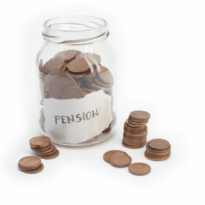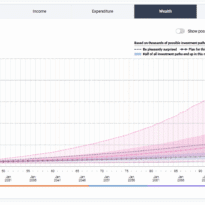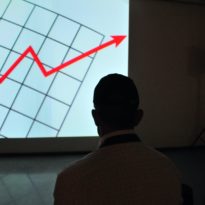UK inflation jumped to a higher-than-expected 3.5% in the 12 months to April, according to official figures.
The Office for National Statistics said the Consumer Prices Index rose to its highest rate in more than a year, up from 2.6% in March, after sharp increases in household bills.
The largest upward contributions to the rise came from housing and household services, transport, and recreation and culture. The largest downward contribution came from clothing and footwear, the figures showed.
An increase in employer national insurance and boost to the national minimum wage is also likely to have hit firms and been passed on to prices.
Alexandra Loydon, director of advice at St. James’s Place, said: “While the Bank of England’s May interest rate cut may have offered some short-term relief to consumers, the higher-than-expected rise in inflation to 3.5% has likely brought this optimism to a halt. Although this increase was expected, driven by April’s rise in household bills, it is no less concerning for consumers who continue to grapple with mounting financial pressures.
“The situation also remains complicated for savers. Indeed, while rates on easy access accounts are starting to fall significantly, today’s inflation figure is expected to mark the start of a prolonged period of inflation above 3%. It is therefore vital that savers stay alert and ensure that they are taking advantage of the most competitive savings rates available.”
Industry commentators said the latest figures raise a question mark over future interest rate cuts.
Loydon said: “While the Bank of England is expected to cut rates by one or two quarter points before the end of the year, the timing of these reductions is becoming increasingly uncertain. As a result, borrowers and mortgage holders are lacking any reassuring clarity.”
Lindsay James, investment strategist at Quilter, said: “There are vocal concerns coming from the Bank of England that interest rate cuts have come too soon and that inflationary pressures need to be combatted. Chief economist Huw Pill sounded the warning earlier this week and worse than expected inflation rate likely means further holds are imminent, especially given the strong economic growth seen in the first quarter.
“Things on the global picture are equally looking less beneficial for inflation. We may be out of the ‘higher for longer’ phase for interest rates, but today’s figures and recent news indicates that we cannot expect rates to fall as quickly as markets would like.”
Meanwhile, Luke Bartholomew, deputy chief economist at Aberdeen, commented: “Inflation was always going to jump higher today given movements in energy and other administered prices, but the reported increase is bigger than expected.
“Certainly, this will reinforce the concerns voiced by BoE chief economist Huw Pill that underlying inflation pressures are sticky and so there is less room for the Bank to cut rates. Nonetheless, we think a quarterly profile of rate cuts remains appropriate, but the chance of the easing cycle speeding up any time soon has fallen.”
Main imgage: jeremy-bishop-G9i_plbfDgk-unsplash































